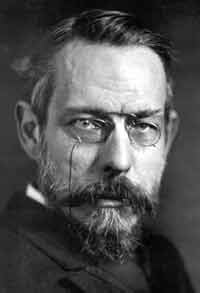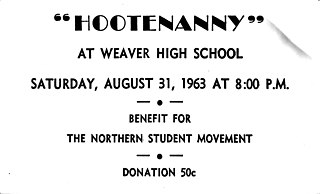Related Research Articles

Howard University is a private, federally chartered historically black research university in Washington, D.C., located in the Shaw neighborhood. It is classified among "R2: Doctoral Universities – High research activity" and accredited by the Middle States Commission on Higher Education.

The University of Cape Town (UCT) is a public research university in Cape Town, South Africa. Established in 1829 as the South African College, it was granted full university status in 1918, making it the oldest university in South Africa and the oldest university in Sub-Saharan Africa in continuous operation.

Columbia College is the oldest undergraduate college of Columbia University, a private Ivy League research university in New York City. Situated on the university's main campus in Morningside Heights in the borough of Manhattan, it was founded by the Church of England in 1754 as King's College by royal charter of King George II of Great Britain. It is Columbia University's traditional undergraduate program, offering BA degrees, and is the oldest institution of higher learning in the state of New York and the fifth oldest in the United States.

The Greensboro sit-ins were a series of nonviolent protests in February to July 1960, primarily in the Woolworth store—now the International Civil Rights Center and Museum—in Greensboro, North Carolina, which led to the F. W. Woolworth Company department store chain removing its policy of racial segregation in the Southern United States. While not the first sit-in of the civil rights movement, the Greensboro sit-ins were an instrumental action, and also the best-known sit-ins of the civil rights movement. They are considered a catalyst to the subsequent sit-in movement, in which 70,000 people participated. This sit-in was a contributing factor in the formation of the Student Nonviolent Coordinating Committee (SNCC).
Theodore "Ted" Gold was a member of Weather Underground who died in the 1970 Greenwich Village townhouse explosion.

James Brander Matthews was an American academic, writer and literary critic. He was the first full-time professor of dramatic literature at Columbia University in New York and played a significant role in establishing theater as a subject worthy of formal study by academics. His interests ranged from Shakespeare, Molière, and Ibsen to French boulevard comedies, folk theater, and the new realism of his own time.

John Jay Hall is a 15-story building located on the southeastern extremity of the Morningside Heights campus of Columbia University in New York City, on the northwestern corner of 114th St. and Amsterdam Avenue. Named for Founding Father, The Federalist Papers author, diplomat, and first Chief Justice of the United States Supreme Court John Jay, it was among the last buildings designed by the architectural firm of McKim, Mead & White, which had provided Columbia's original Morningside Heights campus plan, and was finished in 1927.
Douglas E. Moore was a Methodist minister who organized the 1957 Royal Ice Cream Sit-in in Durham, North Carolina. Moore entered the ministry at a young age. After finding himself dissatisfied with what he perceived as a lack of action among his divinity peers, he decided to take a more activist course. Shortly after becoming a pastor in Durham, Moore decided to challenge the city's power structure via the Royal Ice Cream Sit-in, a protest in which he and several others sat down in the white section of an ice cream parlor and asked to be served. The sit-in failed to challenge segregation in the short run, and Moore's actions provoked a myriad of negative reactions from many white and African-American leaders, who considered his efforts far too radical. Nevertheless, Moore continued to press forward with his agenda of activism.

Gwendolyn Midlo Hall was an American historian who focused on the history of slavery in the Caribbean, Latin America, Louisiana, Africa, and the African Diaspora in the Americas. Discovering extensive French and Spanish colonial documents related to the slave trade in Louisiana, she wrote Africans in Colonial Louisiana: The Development of Afro-Creole Culture in the Eighteenth Century (1992), studied the ethnic origins of enslaved Africans brought to Louisiana, as well as the process of creolization, which created new cultures. She changed the way in which several related disciplines are researched and taught, adding to scholarly understanding of the diverse origins of cultures throughout the Americas.

The University of Missouri is a public land-grant research university in Columbia, Missouri. It is Missouri's largest university and the flagship of the four-campus University of Missouri System. MU was founded in 1839 and was the first public university west of the Mississippi River. It has been a member of the Association of American Universities since 1908 and is classified among "R1: Doctoral Universities – Very high research activity".

The Northern Student Movement (NSM) was an American civil rights organization that drew inspiration from sit-ins and lunch counter protests led by students in the south. NSM was founded at Yale University in 1961 by Peter J. Countryman, which grew out of the work of a committee formed by the New England Student Christian Movement, and was affiliated with the Student Nonviolent Coordinating Committee (SNCC). Countryman began NSM's work by collecting books for a predominantly African-American college and raising funds for SNCC. He then turned to organizing tutoring programs for inner city youth in northeastern cities. By 1963, NSM was reported to be helping as many as 3,500 children using 2,200 student volunteers from 50 colleges and universities. NSM also encouraged direct-action protests, sending volunteers to sit-ins in the South and organizing rent strikes in the North. In the early 60's, NSM's work was divided into three areas which were each headed by an executive committee: "the campus, the community, and the south."
The Black Action Movement was a series of protests by African American students against the policies and actions of the University of Michigan. The protests themselves took place on three occasions in 1970, 1975, and 1987. Many student organizations participated in the movement, which has been called one of the most challenging for administrators in the school's history. Alan Glenn of the Ann Arbor Chronicle said of the 1970 protests that "the BAM strike became one of the few protests of that era in which the students could make a valid claim of victory."
Levi Sandy Alexander Gumby was an African-American archivist and historian. His collection of 300 scrapbooks documenting African-American history have been part of the collection of Columbia University since 1950 as the Alexander Gumby Collection of Negroiana. Gumby was also the proprietor of a popular bookstore during the Harlem Renaissance, where he was host of a salon. Gumby's passion for collecting earned him the nicknames "The Count" and "Mr. Scrapbook".

The 1949 Sun Bowl controversy refers to the student protests at Lafayette College in Easton, Pennsylvania, after a Sun Bowl invitation was extended to the Lafayette Leopards football team under the condition that the African American player, David Showell, would not play.

Alice Carlotta Jackson Stuart was an American educator, and the first African-American woman to apply for graduate school studies at the University of Virginia. She was denied on the basis of "good and sufficient reasons" and later went on to earn her Master of Arts at Columbia University in 1937.

In 2015, a series of protests at the University of Missouri related to race, workplace benefits, and leadership resulted in the resignations of the president of the University of Missouri System and the chancellor of the flagship Columbia campus. The moves came after a series of events that included a hunger strike by a student and a boycott by the football team. The movement was primarily led by a student group named Concerned Student 1950. The movement and protests were documented in two films, one made by MU student journalists and the other, 2 Fists Up, by Spike Lee. While it is alleged that bad publicity from the protests has led to dropping enrollment and cutbacks, others have cited budget cuts issued from the state legislature.
George T. Raymond was an American civil rights leader from Pennsylvania who served as president of the Chester, Pennsylvania, branch of the National Association for the Advancement of Colored People (NAACP) from 1942 to 1977. He was integral in the desegregation of businesses, public housing and schools in Chester and co-led the Chester school protests in 1964 which made Chester a key battleground in the civil rights movement.

The Ku Klux Klan (KKK) arrived in the U.S. state of Oregon in the early 1920s, during the history of the second Klan, and it quickly spread throughout the state, aided by a mostly white, Protestant population as well as by racist and anti-immigrant sentiments which were already embedded in the region. The Klan succeeded in electing its members in local and state governments, which allowed it to pass legislation that furthered its agenda. Ultimately, the struggles and decline of the Klan in Oregon coincided with the struggles and decline of the Klan in other states, and its activity faded in the 1930s.
August Meier was a professor of history at Kent State University and an author. He was a leading scholar on African American history. He edited several books with Elliott Rudwick. The New York Public Library has a collection of his papers.
Furnald Hall is a dormitory located on Columbia University's Morningside Heights campus and currently houses first-year students from Columbia College as well as the Fu Foundation School of Engineering and Applied Science.
References
- ↑ "NEGRO AT COLUMBIA DEFIES HIS CRITICS; Law Student Living in Furnald Hall Says He Won't Be Bullied Into Moving". April 3, 1924 – via NYTimes.com.
- ↑ "DEATH THREAT SENT TO COLUMBIA NEGRO; Another Letter Signed Ku Klux Klan Advises Wells to Leave Furnald Hall. BOMB SQUAD MEN ON GUARD Protest of Students' Committee Is Presented to University, but No Action Is Taken". April 5, 1924 – via NYTimes.com.
- ↑ "Post-1865: Students | Columbia University and Slavery". columbiaandslavery.columbia.edu.
- ↑ "archives.nypl.org -- Frederick W. Wells papers". archives.nypl.org.